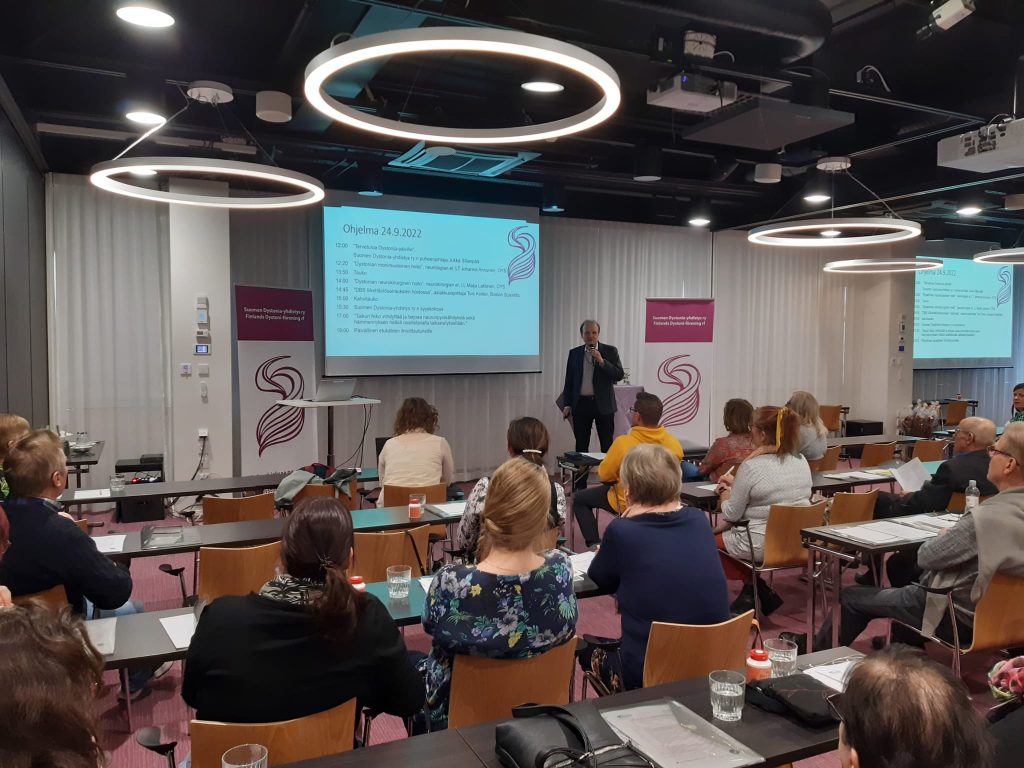The Finnish Dystonia Association, a nationwide patient organization, decided to arrange the Dystonia Days Conference in the largest city in Northern Finland, namely Oulu. Some 60 participants assembled to meet people from all over the country, get and give support and naturally, learn from expert speakers, a neurologist, and a neurosurgeon. After two years of COVID-19 pandemic we were able to arrange even patient discussion groups specializing in different forms of dystonia. It appears we should have allocated even more time for those discussions.
 Neurologist Johanna Annunen described (in a simplified form) the way she makes dystonia diagnoses. The patients’ age has a significant role in diagnosis. Typically, the younger the patient the more probable it is that the cause is genetics. Making a diagnosis is quite a holistic process starting from the moment a medical doctor first sees the patient sitting in a waiting room.
Neurologist Johanna Annunen described (in a simplified form) the way she makes dystonia diagnoses. The patients’ age has a significant role in diagnosis. Typically, the younger the patient the more probable it is that the cause is genetics. Making a diagnosis is quite a holistic process starting from the moment a medical doctor first sees the patient sitting in a waiting room.
Johanna Annunen presented in an interesting way how she plans patient treatment consisting of botulinum toxin injections, medication, and DBS. Each method of treatment has positive and negative effects on patients. The doctor must evaluate which set of treatments have the biggest positive effect on the patient compared to potential disadvantages.
Neurosurgeon Maija Lahtinen concentrated on DBS treatment in her presentation. It was interesting to hear of the cooperation between neurologist and neurosurgeon when DBS treatment has been taken into consideration. Johanna Annunen and Maija Lahtinen are both employed by Oulu University Hospital. Therefore, they were able to describe the above mentioned cooperation.
The Finnish Dystonia Days Conference received great feed-back from the participants. The next Dystonia Days Conference in 2023 is planned to occur in Pori, South-western Finland.

Jukka Sillanpää
President The Finnish Movement Disorder Diseases’ Association and Board Member Dystonia Europe

